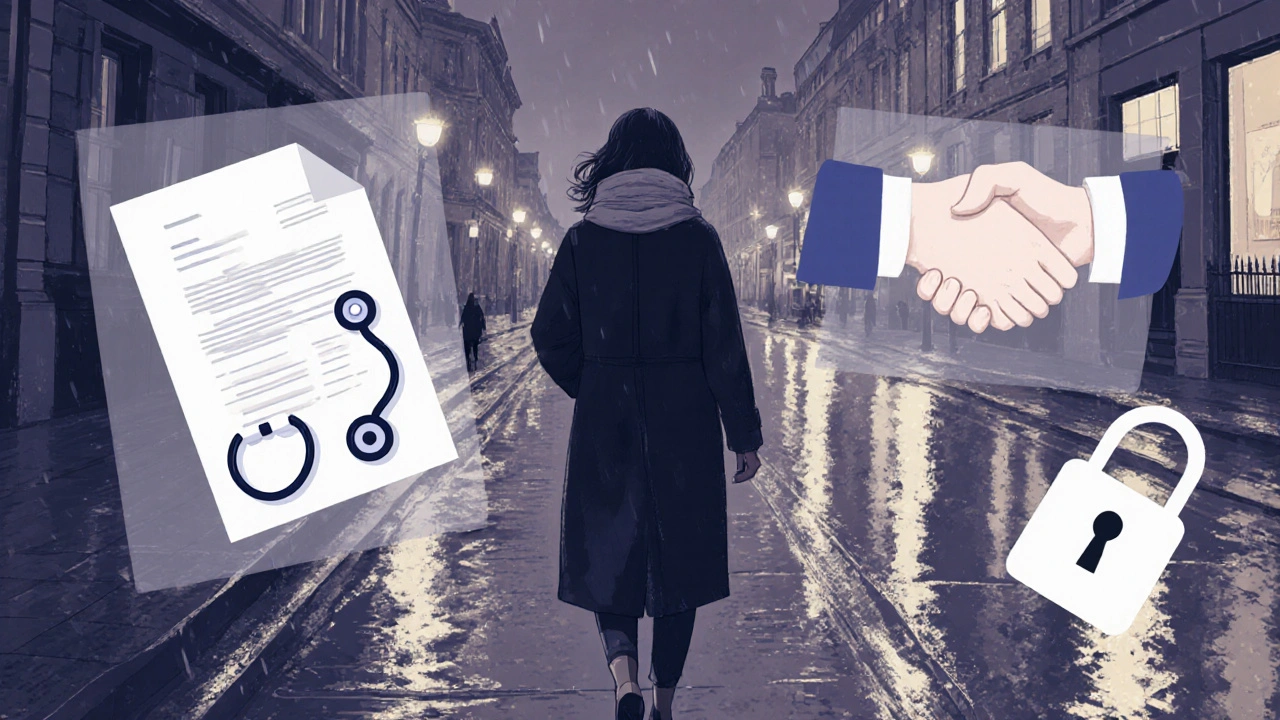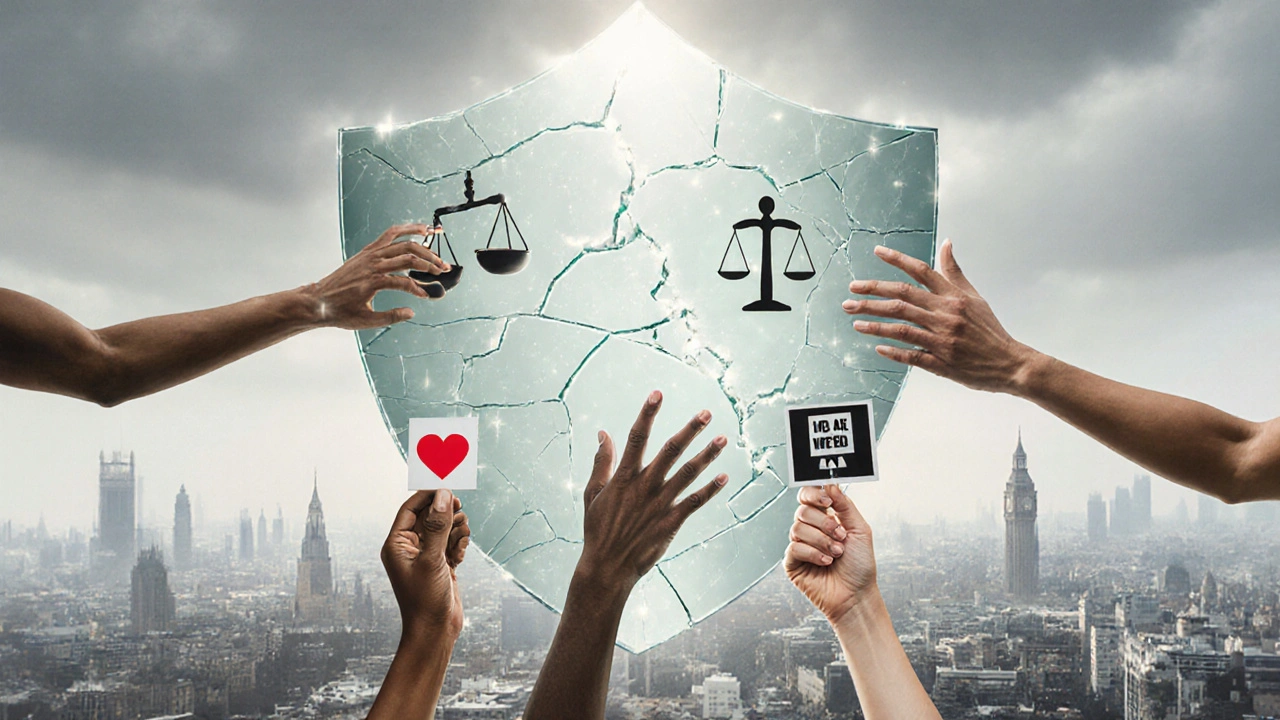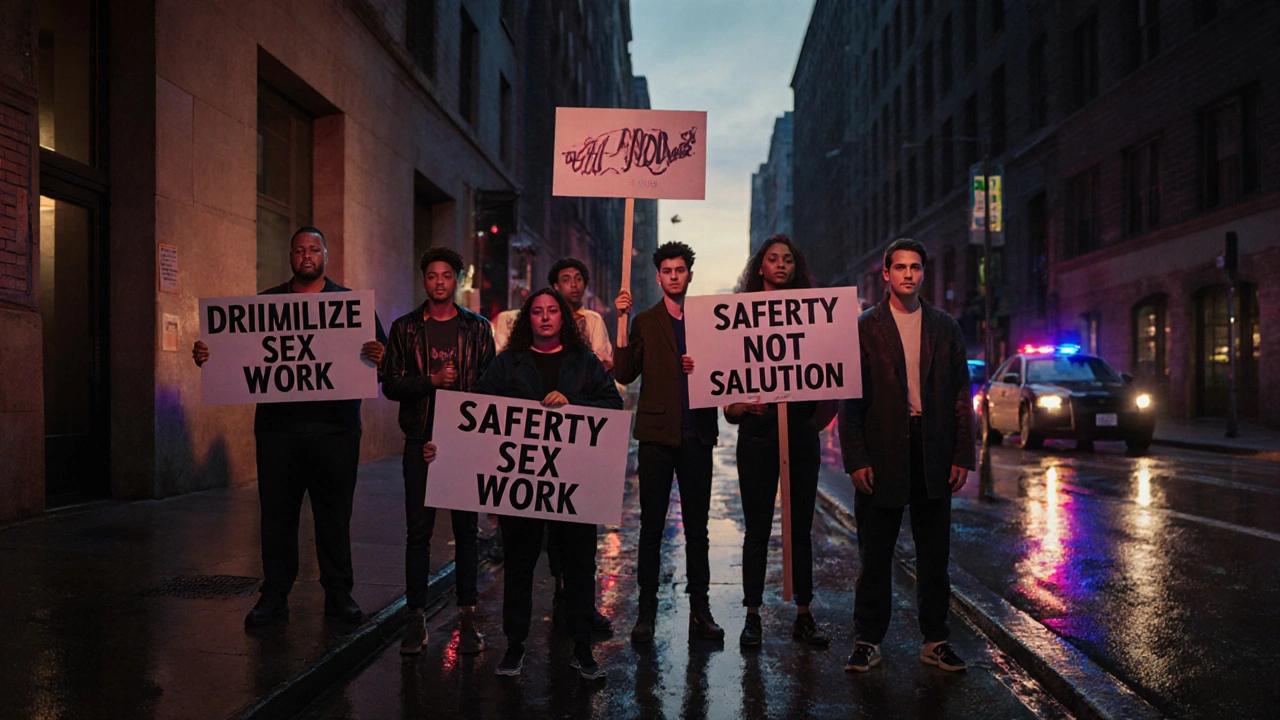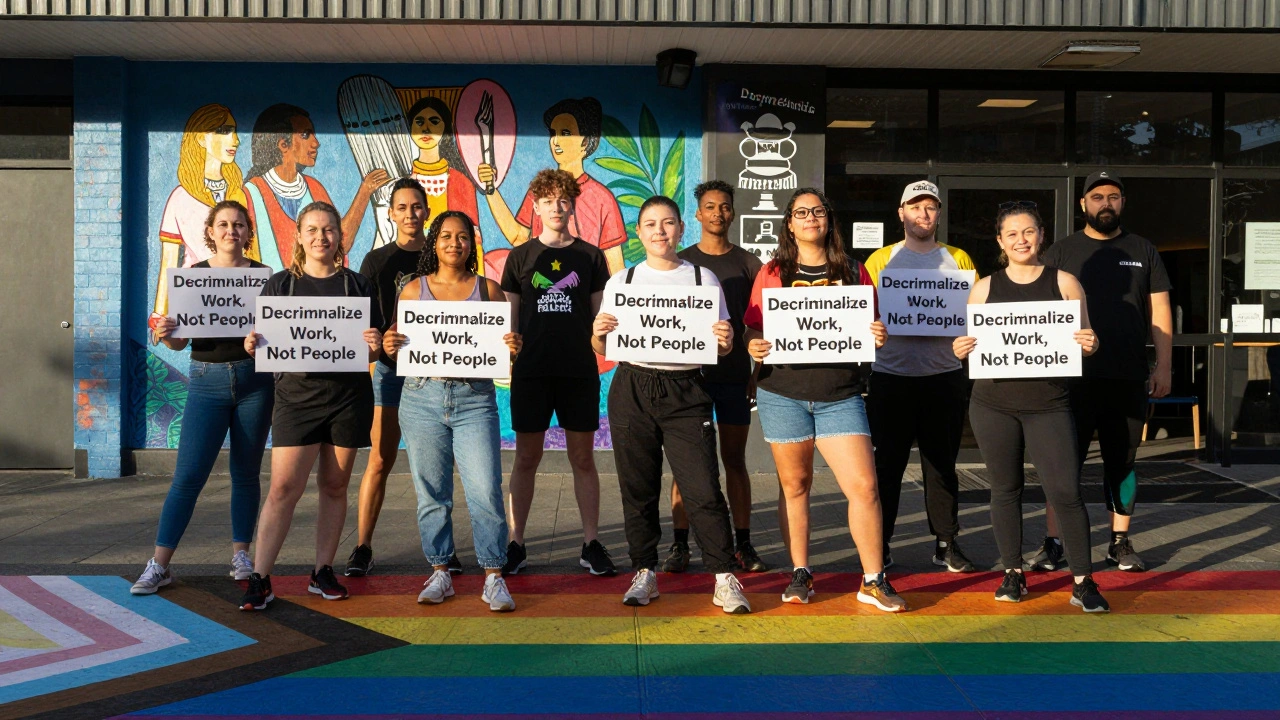Curious about sex worker rights? Whether you're just exploring or looking for actionable advice, this guide breaks it down clearly and simply.
What Are Sex Worker Rights Exactly?
Sex worker rights are the basic human rights of people who exchange sex for money or goods. These include the right to safety, legal protection, healthcare, freedom from violence, and the ability to work without fear of arrest or stigma. They’re not about promoting sex work - they’re about protecting the people doing it.
In countries where sex work is criminalized, workers are often pushed underground. That makes it harder to report abuse, access medical care, or negotiate safe conditions. Rights-based approaches treat sex work as work - not a crime or moral failure.
Why Does It Matter?
It matters because sex workers face some of the highest rates of violence and discrimination in the world. A 2023 study by the Global Network of Sex Work Projects found that 74% of sex workers in Europe reported physical or sexual violence in the past year - and fewer than 1 in 5 reported it to police.
When laws criminalize clients, sellers, or third parties, it doesn’t reduce demand - it just makes workers more vulnerable. Decriminalization, supported by organizations like WHO and Amnesty International, has been shown to reduce HIV transmission, improve access to justice, and lower rates of trafficking.
How Does Legal Status Affect Safety?
- Full decriminalization - Removing all criminal penalties for sex work, as in New Zealand since 2003. Workers can form unions, rent safe spaces, and report crimes without fear.
- Legalization - Only certain forms are allowed under strict rules (like licensed brothels in parts of Germany). This often excludes street-based workers and migrants.
- Criminalization - All aspects are illegal. Common in the UK, US, and many Eastern European countries. Leads to police harassment and unsafe working conditions.
- Nordic model - Criminalizing buyers, not sellers. Used in Sweden, Norway, and France. While well-intentioned, studies show it pushes sex work further underground and increases risk.

Pros and Cons
| Pros | Cons |
|---|---|
| Reduces violence and exploitation | Opposition from moral or religious groups |
| Improves access to healthcare and HIV prevention | Difficult to implement without political will |
| Empowers workers to organize and demand fair treatment | Can be misused by traffickers if not paired with support services |
| Lowers incarceration rates for marginalized people | Public stigma persists even with legal changes |
When Is It Most Useful?
Sex worker rights frameworks are most useful when violence is high, police are unresponsive, or health services are inaccessible. They’re critical for migrant workers, trans women, and people of color - groups disproportionately targeted by law enforcement and exploitation.
In cities like London, where street-based sex work is common but heavily policed, decriminalization would let workers access shelters, legal aid, and mental health support without being arrested for simply being on the street.

Common Mistakes to Avoid
- Assuming all sex work is exploitation - Many workers choose this work for financial independence, flexibility, or personal reasons. Blanket assumptions erase their agency and make it harder to advocate for real protections.
- Blaming the worker for unsafe conditions - When someone is assaulted, the focus shouldn’t be on what they wore or where they worked. The issue is the lack of legal protection and societal support.
- Supporting laws that target clients only - The Nordic model sounds compassionate, but research from the University of Edinburgh shows it increases isolation and reduces workers’ ability to screen clients safely.
- Ignoring trans and migrant workers - These groups face double discrimination. Any rights movement that doesn’t center them is incomplete.
FAQ
Is sex work legal in the UK?
No, sex work itself isn’t illegal, but almost everything around it is. Soliciting in public, brothel-keeping, and pimping are crimes. This creates a legal gray zone where workers are criminalized by association, even if they’re working alone.
Do sex workers want to be "rescued"?
Most don’t. Organizations like the English Collective of Prostitutes and the Global Network of Sex Work Projects consistently say that workers want safety, legal protection, and the right to work without fear - not rescue or rehabilitation programs that force them into other jobs.
What’s the difference between sex work and trafficking?
Sex work is consensual exchange between adults. Trafficking involves force, fraud, or coercion - and it can happen in any industry, not just sex work. Confusing the two leads to harmful policies that punish workers instead of targeting actual traffickers.
Can decriminalization reduce human trafficking?
Yes, evidence shows it can. When sex work is decriminalized, workers can report suspicious behavior without fear. Police can focus on real traffickers instead of arresting workers. A 2022 report from the UK Home Office found that decriminalization models led to a 30% increase in trafficking reports - because people felt safe to come forward.
How can I support sex worker rights?
Listen to sex worker-led organizations like Scarlet Alliance or the English Collective of Prostitutes. Donate to their funds. Challenge myths in conversations. Vote for leaders who support decriminalization. And never assume someone’s story - ask how you can help, instead of telling them what they need.
What’s Next?
Start by learning from sex workers themselves. Read reports from the Global Network of Sex Work Projects. Follow activists on social media. If you’re in the UK, join campaigns pushing for decriminalization in Parliament. Real change starts when people stop seeing sex workers as problems - and start seeing them as people with rights.






minakshi gaval on 2 November 2025, AT 10:32 AM
So you're telling me if we just decriminalize sex work, all the traffickers will magically turn into saints? 😅 I mean, I get the theory, but have you seen how fast these underground networks adapt? The moment you remove the stigma, they just rebrand as "escort agencies" and start trafficking minors under the radar. It's not about rights-it's about control. And who's really in control? The ones with money, not the workers.
Also, why is no one talking about how this affects regular women trying to get jobs? If a guy can just pay for sex without consequences, why would he ever hire a secretary or a nurse? It's not empowerment-it's economic sabotage wrapped in rainbow flags.